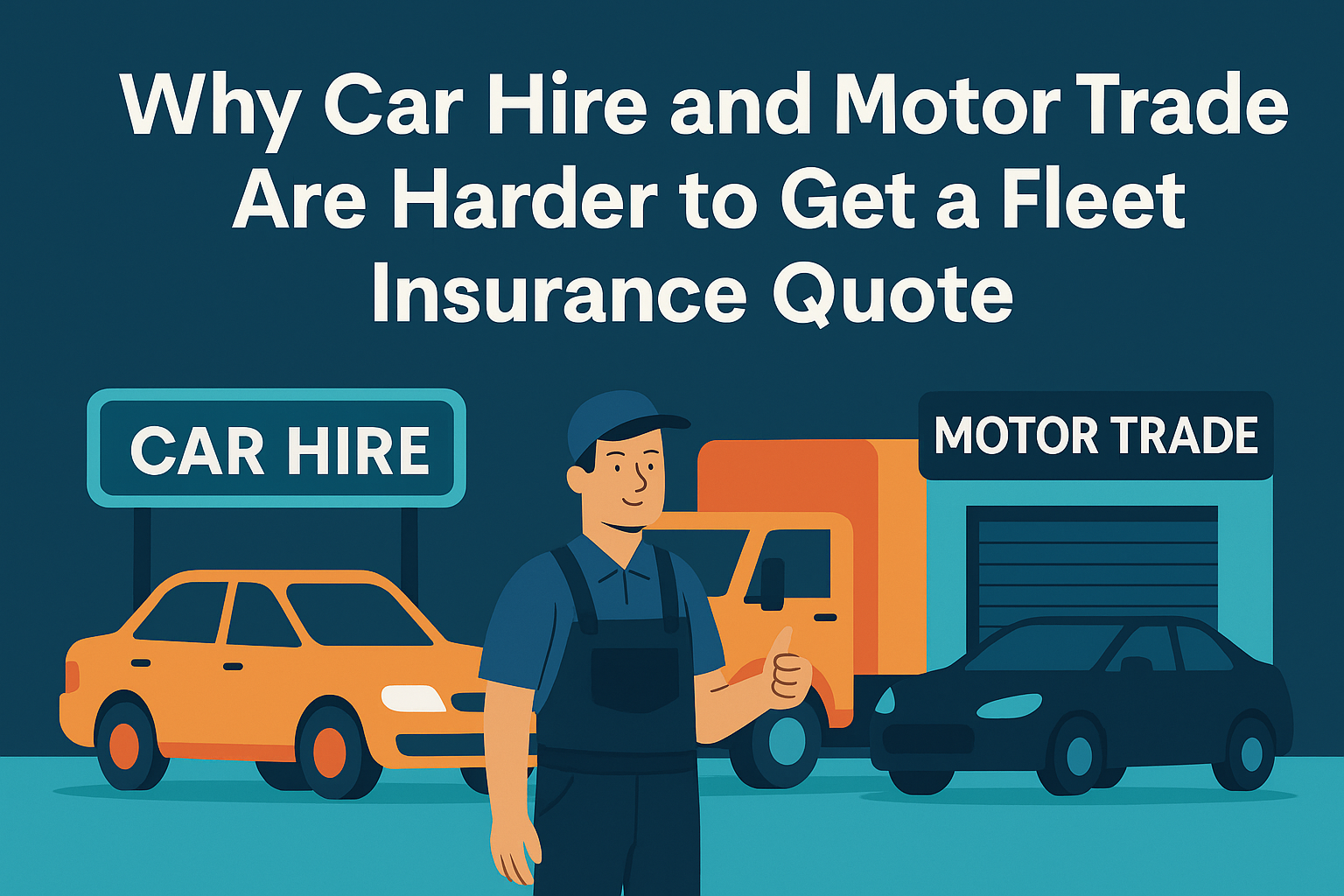Fleet Insurance Comparison – Key Red Flags to Watch out For
Whether you’re a private company managing your own fleet of vehicles or a public entity like a local government or school district, choosing the right type of insurance for your fleet is essential. Fleet insurance helps protect all your vehicles and drivers under a single policy, whether you’re managing a fleet of delivery vans, trucks, or company cars. However, with so many providers and policy options out there, how do you know which one is best suited to your business’s unique needs? Here’s what you should keep an eye on when comparing fleet insurance policies.
Cover Options: Choosing What’s Right for You
Before selecting a fleet insurance provider, it’s important to think about your fleet’s immediate and long-term needs. Consider factors like the types of vehicles in your fleet, the kind of work they do, and how many drivers you need to cover.
Here are the main coverage options you should compare:
- Comprehensive Insurance: This offers full coverage, including third-party damage and damage to your own vehicles.
- Third-Party Insurance: Covers damage to third parties or their property, but not your own vehicles.
- Third-Party, Fire, and Theft Cover: The basic third-party cover, but with added protection for fire and theft.
- Driver Cover: Ensure your policy covers all drivers, including temporary ones.
When comparing policies, ensure the coverage fits your business. If your fleet operates in high-risk environments, comprehensive coverage may be the better choice.
Premium Costs: Finding the Balance Between Price and Protection
One of the biggest considerations when comparing fleet insurance policies is the premium cost. Premiums vary based on factors such as the number and type of vehicles, driver experience, and your claims history.
While cheaper options may be tempting, you need to make sure you’re not sacrificing coverage. A lower-cost policy may leave you underinsured, putting your fleet at risk. When comparing premiums, keep these in mind:
- Are you getting more coverage than you need for the price?
- Are there exclusions that could leave you unprotected?
- What’s the average excess (the amount you pay upfront before the insurer covers your claim)?
Excess Levels: The Hidden Costs
The excess is the amount you have to pay before your insurer will cover the rest of the claim. A higher excess may reduce your premium, but it also means you’ll have to pay more out of pocket in the event of a claim.
When comparing policies, check the excess amount, especially for claims involving:
- Vehicle damage
- Theft
- Third-party damage
It’s important to ensure that the excess is affordable, especially if your fleet covers a lot of miles or operates in high-risk areas.
No Claims Discount (NCD) and Claims History
Many insurers offer a No Claims Discount (NCD) as a reward for maintaining a clean claims history. This can significantly reduce your premiums over time, so it’s worth considering when comparing policies.
If your fleet has a history of claims, be sure to check how this impacts your premiums. Some insurers will offer discounts for a claims-free history, while others will raise premiums if you’ve had multiple claims.
Also, take the time to review each insurer’s claims handling process. How quickly do they respond? Are they known for settling claims fairly? A reliable claims process can save you time and hassle when you need it most.
Fleet Size and Flexibility
Your fleet insurance needs will change over time as your business grows or reduces the number of vehicles. Look for a provider that allows you to add or remove vehicles from your policy with ease.
Key questions to ask include:
- Is there a minimum or maximum number of vehicles required?
- How easily can you adjust the number of vehicles covered?
- Are there options to increase coverage if you add new vehicles or change their use?
Having the flexibility to adjust your policy throughout the year ensures you’re not locked into coverage that no longer fits your fleet’s needs.
Driver and Vehicle Eligibility
Each insurer sets its own eligibility criteria for drivers and vehicles. Be sure to check that your drivers meet the insurer’s requirements, such as age, experience, and claims history.
Also, some insurers may have restrictions on the types of vehicles they cover. For example, if your fleet consists of vans, trucks, and cars, ensure the provider can cover all the vehicles you own.
Other Services and Perks
When comparing fleet insurance policies, consider the additional services or benefits provided by the insurer. These could include:
- 24/7 breakdown assistance: Vital for keeping your fleet operational and off the roadside.
- Telematics: Many insurers offer telematics devices to monitor driver behaviour and vehicle performance. This data can potentially reduce premiums if your drivers demonstrate safe driving habits.
- Fleet management technology: Some insurers offer software that helps you monitor vehicle maintenance, fuel usage, and other key metrics.
These added services can increase the efficiency of your fleet and help reduce insurance costs.
Reputation and Customer Service
The reputation of the insurer is a key factor when making your decision. Choose a provider with strong customer service and a proven track record for handling claims quickly and fairly. Look for reviews, check how they handle claims, and ask other fleet managers for recommendations to get a clear idea of what to expect.
Get a Fleet Insurance Quote from Gavello
When comparing fleet insurance options, you can save time and effort by using Gavello’s fleet quoting service to start your fleet insurance quote. Our user-friendly online platform connects you with qualified brokers, providing you with competitive quotes so you can choose the best deal tailored to your fleet’s needs. You’ll be in control every step of the way, receiving customised coverage options at a competitive price.
Choose Wisely and Responsibly
When comparing fleet insurance, you need to weigh cost against coverage and service. By understanding the details of each policy, including premiums, excess, NCD, and flexibility, you can make an informed decision that ensures the right protection for your fleet.
Choosing the right insurance policy will protect your business’s assets and ensure smooth operations. Take the time to compare options thoroughly and consult industry professionals if needed.




